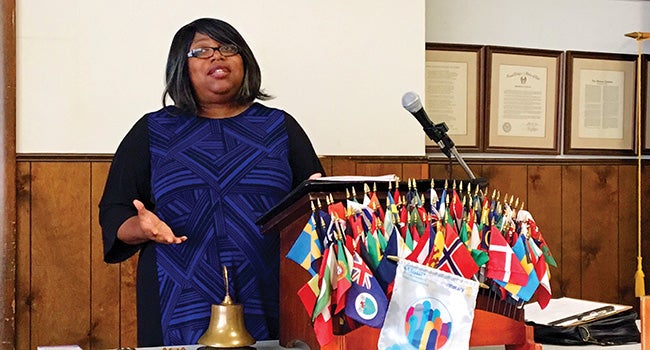Local agency providing support to victims of domestic violence
Published 8:00 am Friday, September 1, 2017

- (Leader photo/TED YOAKUM)
While it may seem like an invisible problem to people who have never experienced it, domestic violence is very real — and very costly to the victims who suffer from it.
It’s a cost that people can even count. In the United States, domestic violence costs $8.3 million in medical expenses and lost productivity to victims of abuse every year. That figure skyrockets to $8 trillion when the entire globe is taken into account, a number that is higher than the annual costs caused by war.
Sadly, it is not just adult women who suffer from the domestic violence. Around 20 percent of senior citizens in the U.S. have reported abuse by their spouse or one of their adult children.
Even unborn children are not immune to the problem, as cortisone, a hormone that is produced by the body in response to stress, is toxic to children in the womb. This means that when abusers attack a pregnant woman, they are damaging both her and her unborn child.
“It’s just as lethal to her child as if she drank every day of her pregnancy,” said Deborah Hackworth, Director of Volunteer and Advocacy Services for Three Rivers’ Domestic and Sexual Abuse Services.
The Cassopolis woman shared the ways that the tri-county agency is fighting to end domestic violence in southwest Michigan during her presentation to the members of the Dowagiac Rotary Club Thursday at the local Elks Lodge. Rotarian Jennifer Ray, a member of the DASAS board of directors, invited Hackworth to speak before the club that afternoon.
DASAS, founded in 1984, provides counseling, temporary housing, legal help and other services to victims and families impacted domestic and sexual abuse in Cass, Van Buren and St. Joseph counties. In addition to its headquarters in Three Rivers, the agency has an office located in Dowagiac, where Hackworth is stationed, she said.
The primary service DASAS provides is its emergency shelter in Three Rivers, where women and their children may stay for up to 30 days in order to escape abuse. During their stay, staff provide residents with food, clothing and transportation, which allows survivors to save their money and get their family back on their feet after they leave, Hackworth said.
On top of providing them with a place safe from their abuser, the shelter gives survivors a space where they can recover and decompress after years of being victimized. Many women who escape domestic violence suffer from post-traumatic stress disorder, which only manifests after escaping, Hackworth said.
“For many years, PTSD was only associated with people who have gone to war,” Hackworth said. “But we know that women and children who go through domestic violence in their home are living in a warzone, every day. They’re living with a terrorist in their home.”
The DASAS staff also offers crisis counseling through its 24-hour emergency line, where a trained advocate offers advice and helps devise a plan to get the caller out of danger.
DASAS also provides counseling to survivors through individual and group sessions. One of the group’s classes is called “pattern changing,” a 15-week course which provides survivors with the skills and knowledge they can use to ensure they never end up in another abusive relationship again.
“[Participants] are usually court ordered to come to the class,” Hackworth said. “They come in kicking and screaming, but by week four, they recognize the value of it. They usually stay on past their class time to support other women in the group.”
One of the agency’s most important functions is community outreach. By partnering with businesses, other agencies and even festivals, DASAS members are able to communicate the dangers of domestic and sexual violence and let victims know someone is out there ready to help them escape the pain.
“We will be at Under The Harvest Moon in October,” Hackworth said. “We usually sell something or give things away, but my whole reason for being there [is to help]. If even one person comes by and says, ‘I didn’t know this available in my area, but now I know and need your help,’ that the whole reason I am there.”
For more information people may contact DASAS at (269) 273-6154.






